Texas Tribal Buffalo Project: Timeless Methods, Novel Opportunities
As Chief Executive Director and Founder of the Texas Tribal Buffalo Project, Lucille Contreras is committed to helping heal the generational trauma of native nations in Texas. The Texas Tribal Buffalo Project seeks to establish food sovereignty and reconnection to the buffalo by raising bison with good stewardship, offering quality bison meat that promotes the health and wellbeing of tribal members in Texas, providing Texans a chance to understand the buffalo, shared history and culture, and finally modeling regenerative agricultural practices.
The project prioritizes the three pillars of food, culture, and sustainability in everything it does.
Lucille says that since arriving at the ranch in early 2021, a wider variety of native grasses such as wintergrass and bluestem grasses are already beginning to make a comeback due to the bison’s grazing patterns. Lucille explains that on her property they gracefully chew the tops off the grass instead of yanking, they don’t overstress riparian areas, and their stomping and defecating are natural soil biological stimulators. Their large and sharp hooves serve to aerate the soil, create pockets that hold water when it rains, and help in planting seeds. Lucille has seen bison grazing help control the Mesquite tree population; a native but thorny and persistent shrub-like tree that beleaguers ranchers and dominates disturbed lands in the south and southwest. Lucille has observed bison feeding on tender mesquite leaves which, she suspects, may be causing her Mesquite trees to become stunted, and in some cases, die back completely.
With a changing climate and more frequent droughts, the agriculture industry needs a new way of producing the food, fiber, and materials used to live. The Texas Tribal Buffalo Project, Lucille says, demonstrates the regenerative potential of working with bison to restore soil health and increase biodiversity for a more resilient food system. The Texas Tribal Buffalo Project allows people to learn about the bison’s history, their impact on the American landscape, and the indigenous cultures that developed with them. It provides a space that allows tribal people to reconnect with the buffalo relatives physically and culturally.
Lucille believes the spiritual and cultural importance the buffalo hold in the Apache tribe’s consciousness cannot be overstated. Bison are at the center of this cultural and spiritual reconnection for the Lipan Apache. According to prophecy, the return of the buffalo to Texas symbolizes native people of Texas regaining their strength.
“In taking care of bison, bison will take care of us,” says Lucille.
Currently the Texas Tribal Buffalo Project sells frozen meat for consumption, bleached skulls for ceremonies, and tanned hides for aesthetic purposes. To learn more about the Texas Tribal Buffalo Project, visit their website here. Learn more about raising bison in this free informational download published by NCAT’s ATTRA Sustainable Agriculture program.
The views expressed in this featured story do not necessarily represent the views of NCAT.

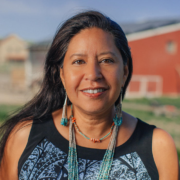
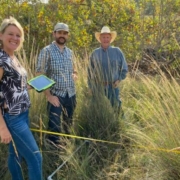

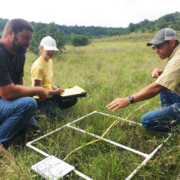

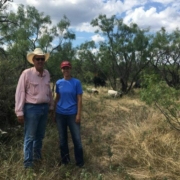
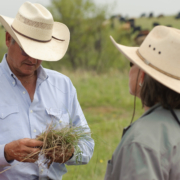 USDA NRCS
USDA NRCS 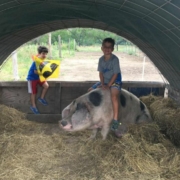
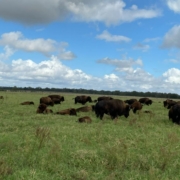

 NCAT
NCAT